Recent years have shown us that digital transformation is here to stay, especially as business landscapes become more complex and interconnected. And in the marketing industry, the adoption of artificial intelligence (AI) has been particularly salient.
With the growth of this tech top of mind for digital marketers, you might be wondering if taking on these resources is the right thing to do for your brand — not to mention thinking about what kind of AI tools you should be leveraging if it is a suitable strategy.
Read on for a comprehensive guide on the possibilities of AI for your marketing efforts in 2023 and beyond.
How Is AI Used in Marketing Today?
So, you’ve likely heard the term before — AI. But, what exactly does that mean in the marketing world?
First, let’s talk about AI in general: AI technology mimics human intelligence processes to perform tasks and improve those functions accordingly. These tools have been increasingly adopted across industries as part of a digital strategy to drive efficiency, improve the customer experience, identify patterns and solve problems effectively. The market for this tech is massive, and it’s only projected to expand. Precedence Research reports that the global AI market size, valued at $119.78 billion in 2022, is expected to hit $1,591 billion by 2030 with a compound annual growth rate (CAGR) of 38.1% during the forecast period.
$1,591 billion. Take a second and let that sink in.
Clearly, AI technology is here to stay. But, is the same true for AI as a marketing tool?
Essentially, artificial intelligence marketing refers to the process of leveraging AI tools and methods to achieve marketing goals. This often includes data models, algorithms and machine learning (ML) that can generate actionable consumer insights for marketers; who use this information to optimize resource allocation, customize content creation, better predict customer behavior and personalize the consumer journey for the best results.
With the different platforms, tools and segments of AI marketing available today, the possibilities for brands are virtually endless — they’re likely already more extensive than you may even realize. This can range from AI infrastructure and services to tools that generate generate AI graphics, audio, videos and more.
According to the Harvard Business Review, this can be broken down into 4 kinds of marketing AI:
- Stand-alone machine learning.
- Integrated machine learning.
- Stand-alone task automation.
- Integrated task automation.
Let’s get into some of the major use cases of this tech in the modern marketing landscape.
Examples of How AI Is Used in Digital Marketing Today
AI continues to increase its impact in content marketing. Marketing AI is all around you whether you realize it or not: In fact, some of the most popular brands in the world are leveraging some type of AI powered marketing tool to reach their business goals.
Don’t believe us? Just take a look at these 3 examples of successful AI from a few familiar brands:
1. Starbucks Optimizes the User Experience and Use of Analytics
Starbucks, one of the world’s largest coffeehouse chains, is known for delivering a favorable and consistent consumer-centric approach that employs tactics such as an outstanding rewards program to enhance the customer experience. They’re a great example of how to take these successful marketing efforts even further with a boost from an AI marketing tool… or 2.
The coffee brand uses its loyalty card and member app to collect and analyze customer data, recording details of purchases such as what time of day the user made the order. A few years back, the company announced plans to use predictive analytics to process this customer data and personalize services accordingly (e.g., providing recommendations when a user approaches a local store).
But that’s not all. Starbucks has also applied AI strategies to provide their audience and potential customers with an added layer of value: They’ve integrated their highly subscribed app (31.2 million users to be exact, per Tearsheet) with Amazon’s Alexa technology. This allows users to place, modify and confirm orders more conveniently.
2. Sephora Makes Use of an AI-Powered Messenger Service
Sephora, a multinational beauty and cosmetics brand, was an early proponent of utilizing AI to improve marketing efforts and build meaningful customer relationships. And, after seeing successful results, they’ve continued these initiatives.
So, what does AI in digital marketing look like at Sephora? Most predominantly, in the form of a chatbot to offer users the most individualized and informative customer experience possible. Recognizing its overwhelmingly extensive choice of products, the beauty brand launched an interactive quiz to facilitate the customer journey — guiding users, narrowing down choices and offering tailored tips along the way. This not only provided the company with valuable insights, but also considerably increased engagement with its target audience.
Something interesting to keep in mind: While Sephora has seen significant positive results from AI implementation, only 23% of companies are currently using AI chatbots, according to a report from Salesforce. But, we’ll dive into why organizations might choose to abstain from AI tools a little later on.
3. Amazon Takes on Machine Learning With Personalize
Amazon has been a pioneer in employing AI and ML in many parts of its business, and the company plans to continue extending these capabilities where it can. This includes launching Amazon Personalize, which uses machine learning to create individualized recommendations for fast-changing catalogs of books, movies, music, news articles, etc. After enhancing functionalities, the Amazon team reported that Amazon Personalize can now deliver 50% better recommendations across these categories.
For these major brands, AI fits well into their unique digital marketing technology stack and their strategic implementation of these tools has led to successful outcomes. Many organizations are now looking to digital transformation service providers to seamlessly integrate, or even develop their own AI technologies into their operations. But, it’s essential to note that such digital tools aren’t always the solution.
Considering the Pros and Cons of an AI Marketing Strategy
According to Semrush, 48% of marketing leaders agree that AI technologies have made the most significant difference in how their potential customers interact with the brand. On the other hand, the Harvard Business Review reports that fewer than 40% of companies that invest in AI see gains from it (usually as a result of one or more errors).
So, what do these conflicting statistics tell us about relying on an AI marketing strategy? They reveal that the value artificial intelligence can bring to your business isn’t black or white: Whether or not you decide to leverage AI in some form or another should be dependent on your brand’s needs and the unique marketing campaign at hand.
For teams that aren’t sure if an AI system is the right call, here’s a closer look at the pros and cons of marketing AI to keep in mind to help you make that decision:
Pros
- Drive productivity: Emerging technologies like artificial intelligence and automation present valuable opportunities to improve efficiency, mitigate errors and automate repetitive tasks. This boosts long-term productivity while saving time and resources. For example, a text to video generator can create videos simply using text inputs thereby saving a lot of time.
- Provide an enhanced and personalized user experience: Brands want to create the best experience for their customers, but with consumer expectations higher than ever, this can be a difficult feat. AI tools can offer both the information and the support needed to promote a high-quality, customized experience for users — leading to more powerful marketing efforts.
- Streamline your team’s marketing initiatives: Professionals in the industry know all too well that marketing can feel like a guessing game despite your best efforts to develop a comprehensive strategy. When your time, attention and resources are of the essence, AI-driven data and analytics provide the insight needed to limit guesswork and devise more effective content marketing plans moving forward.
- Increase business ROI: AI technologies can help you understand your target audience better and improve future decision-making using data and predictive analytics. This, in combination with enhanced efficiency and a more tailored user experience, results in better ROI.
Cons
- Leads to an overly complex tech stack: Your marketing technology stack is meant to make difficult processes easier and drive better outcomes. However, complicated and disconnected systems can quickly become a major obstacle instead, leading to data loss that prevents you from acting in real time.
- An AI algorithm can be wrong: Teams across industries now rely on marketing automation and other AI tools to reduce human error, but machines are far from perfect, and people are more complex than a formula. An AI algorithm is most effective when used as a guide for your organization’s human component, as opposed to a one-stop-shop solution.
- Possible resistance from customers and employees: The simple truth is that we, as humans, are resistant to change. With a general lack of understanding and a fear that employees are losing control over their work, there’s an understandable hesitation about marketing AI that must be taken into consideration.
- AI technology needs humans: Technology may be more prevalent than ever, but humans are still the most vital part of every marketing process. This means that AI can certainly empower your team with solutions and efficiencies, but it won’t be possible to solely use AI for content creation moving forward.
At the end of the day, it’s vital to take the limitations of marketing AI into account. But, advanced technologies still hold considerable promise in the industry. If you’ve weighed the pros and cons of introducing AI into your digital marketing strategy and decided it’s the right move for your brand, there are a few mistakes you should take care to avoid.
Common Pitfalls for Marketers To Avoid When Adopting AI
Don’t be the digital marketer who fails to:
- Personalize where possible: According to a report from Salesforce, 52% of customers expect an individualized buying journey, and AI can present a valuable opportunity to improve how you personalize experiences and connections with your target audience. However, many businesses have fallen into the trap of focusing too much on automation, which can lead to a less-customized AI approach.
- Mitigate bias: Workplaces today are committed to minimizing bias, but, unfortunately, algorithms can absorb and perpetuate social inequalities — not to mention mobilize them at scale. To combat this, marketers and team leaders must evaluate AI bias before implementing a new system and continuously monitor it after deployment.
- Prepare and properly train employees: It’s normal, and likely even expected, to encounter resistance when putting emerging technologies like AI, automation and machine learning into practice. Why? Generally, this is because people don’t completely understand this tech yet and they’re afraid it could impact their careers. Introducing small language models can help ease the transition, as they are simpler and less resource-heavy, making it easier for everyone to adapt to new technology. Launching AI tools successfully requires adequate support and communication across the corporate ladder, so all team members recognize how new tech fits into their role and the organization at large.
Considering AI Tools for Digital Marketing in 2023 and Beyond
Currently, 61.4% of marketers report using AI in their marketing efforts, and 44.4% are utilizing these tools for content production specifically, per Influencer Marketing Hub. With the majority of organizations employing at least some type of artificial intelligence tool, you might be curious as to what kinds of solutions we’re talking about here.
Let’s take a closer look at some of the most popular AI marketing tools for businesses to consider:
Task Automation
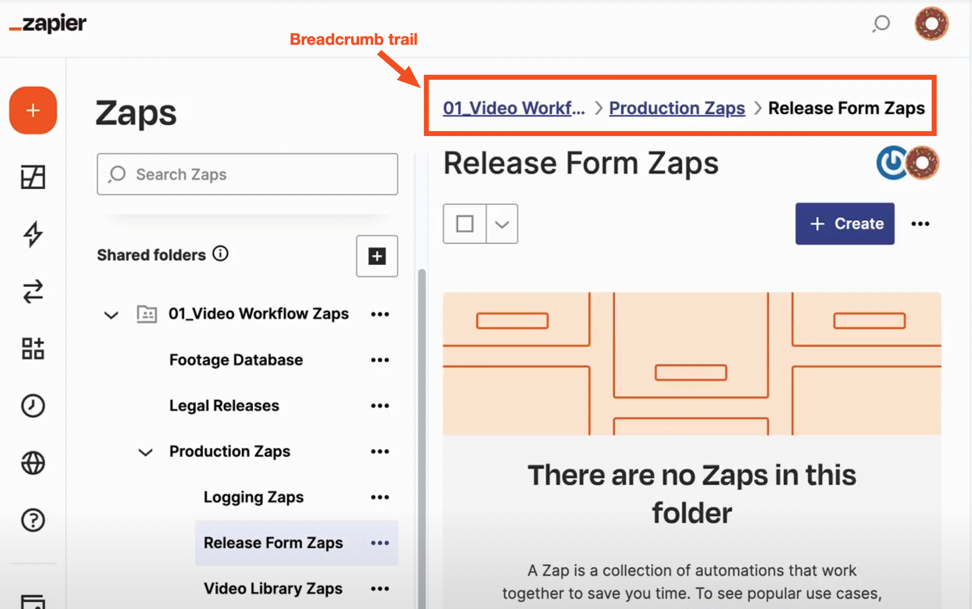
When you think of AI, there’s a good chance your mind goes to marketing automation. This might include, for example, automating drip campaigns, email newsletters and content download delivery, or smart personalization in emails.
Teams looking for these kinds of task automation capabilities can turn to Zapier. This highly accessible, easy-to-use AI tool connects applications and services to improve an organization’s tech stack and process integration. With over 3,000 automation “zaps” available as we speak, you can build customized workflows based on logic criteria you create and establish connections between thousands of systems — saving you time and money and supporting efficiency.
Search Engine Optimization (SEO) Tools
SEO has become an essential ingredient in a brand’s marketing strategy to make websites and content more visible. This ultimately means more traffic, and, in turn, more opportunities to convert prospects into customers.
There are several AI SEO tools available today that are designed to boost search rankings and reader engagement. For instance, Semrush comes packed with a variety of SEO and content marketing features. You can track and showcase search engine result page rank (SERP) for chosen keywords against competitors’ sites and compare domain and keyword analytics on a month-to-month basis.
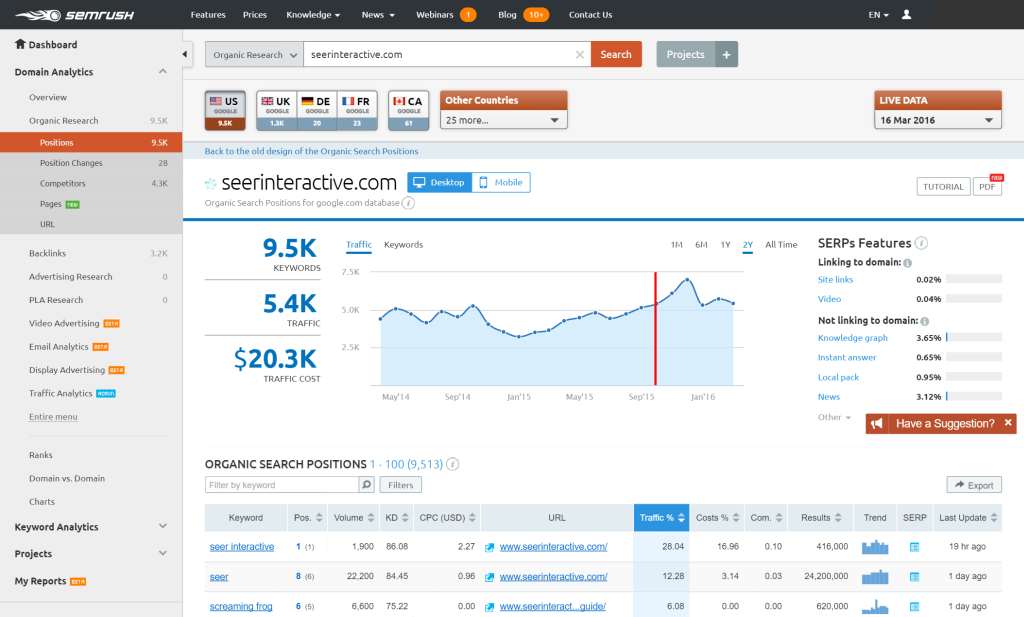
Or, you might opt for a popular alternative, Surfer SEO. This content optimization tool also aims to support your brand by offering actionable insights for your specified domain, niche and target audience — helping you hit your organic growth metrics for Google search.
Digital Experiences
The experience that your brand offers is essential today. And when we say digital experience, we mean the complete journey that your site visitors go through, from their initial visit all the way to conversion (or what you’re trying to avoid: dismissal).
Organizations can employ FullStory, which uses AI to track every click, cursor movement and page visit across a user’s process. This gives you a better look at the whole “story,” so to speak, and provides valuable data along the way. Key insight into the customer journey can help guide your strategies to enhance the user experience and engagement and potentially lead to a conversion.
Conversational Tools
Digital marketers are increasingly leveraging conversational AI tools that facilitate easy communication and engagement with customers From simple chatbots to more professional WhatsApp chatbot integration. Forbes reports that this type of artificial intelligence can improve conversion rates by 40% and deliver a 67% increase in sales on average.
For marketing teams, this might look like implementing an AI chatbot with a tool such as Chatfuel, which allows you to create a customized virtual personality using an intuitive drag-and-drop interface. This is often a great option to replace a humdrum FAQs section with something a little more engaging.
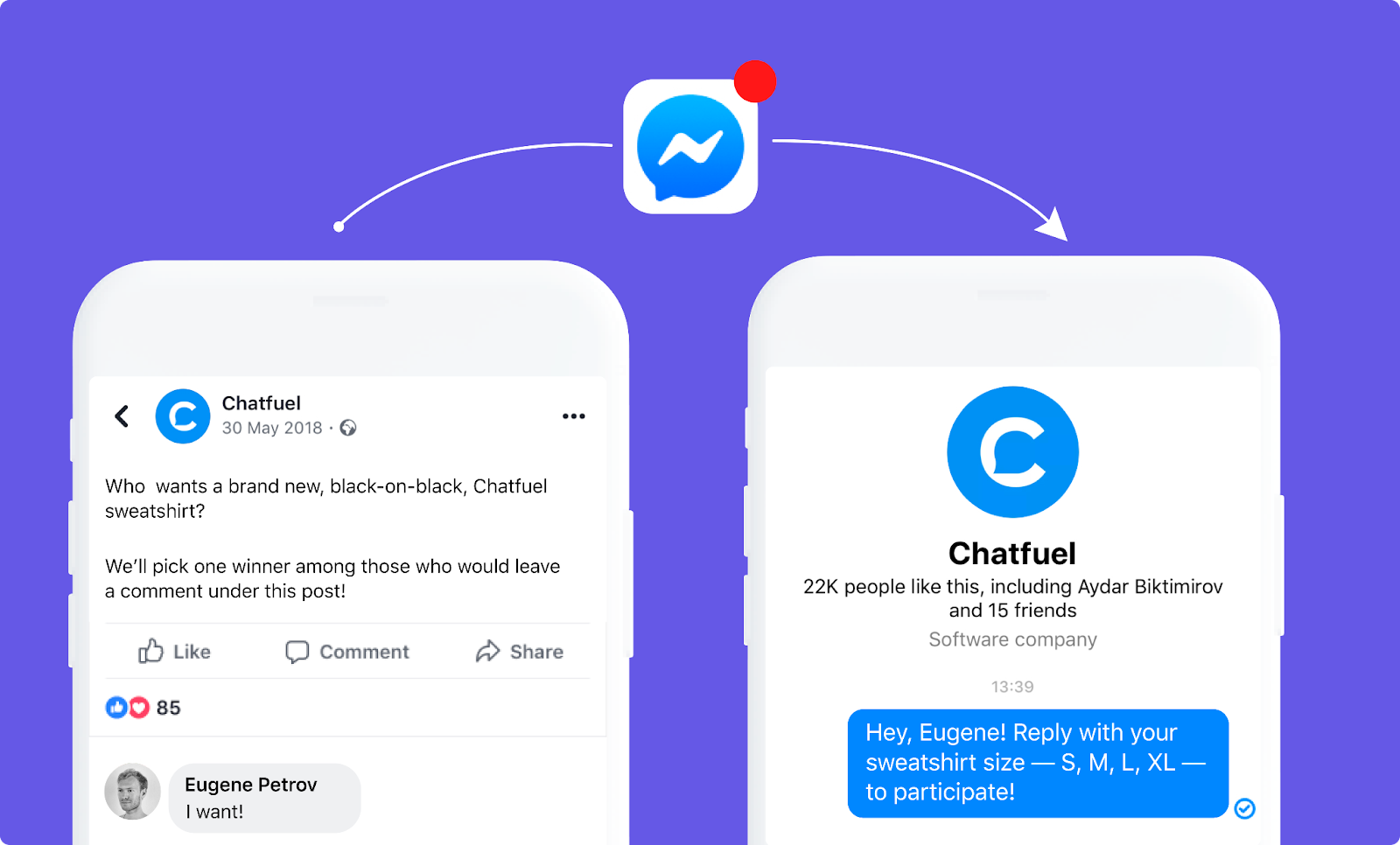
For a tool that homes in on conversation management, teams are employing options like Userbot.ai. This takes the AI chatbot approach a step further by handing operations over to a human operator when the computer isn’t up for the task. Userbot is designed to then monitor and learn from the rest of the conversation, becoming more intuitive and effective over time.
Visual Content
The power of visuals in content marketing should never be underestimated. But, producing the graphic or visual asset that’s just right can be stressful and time-consuming. Organizations are turning to AI graphic design tools that are trained to identify the type of visual asset that your content needs and then provide it in a snap.
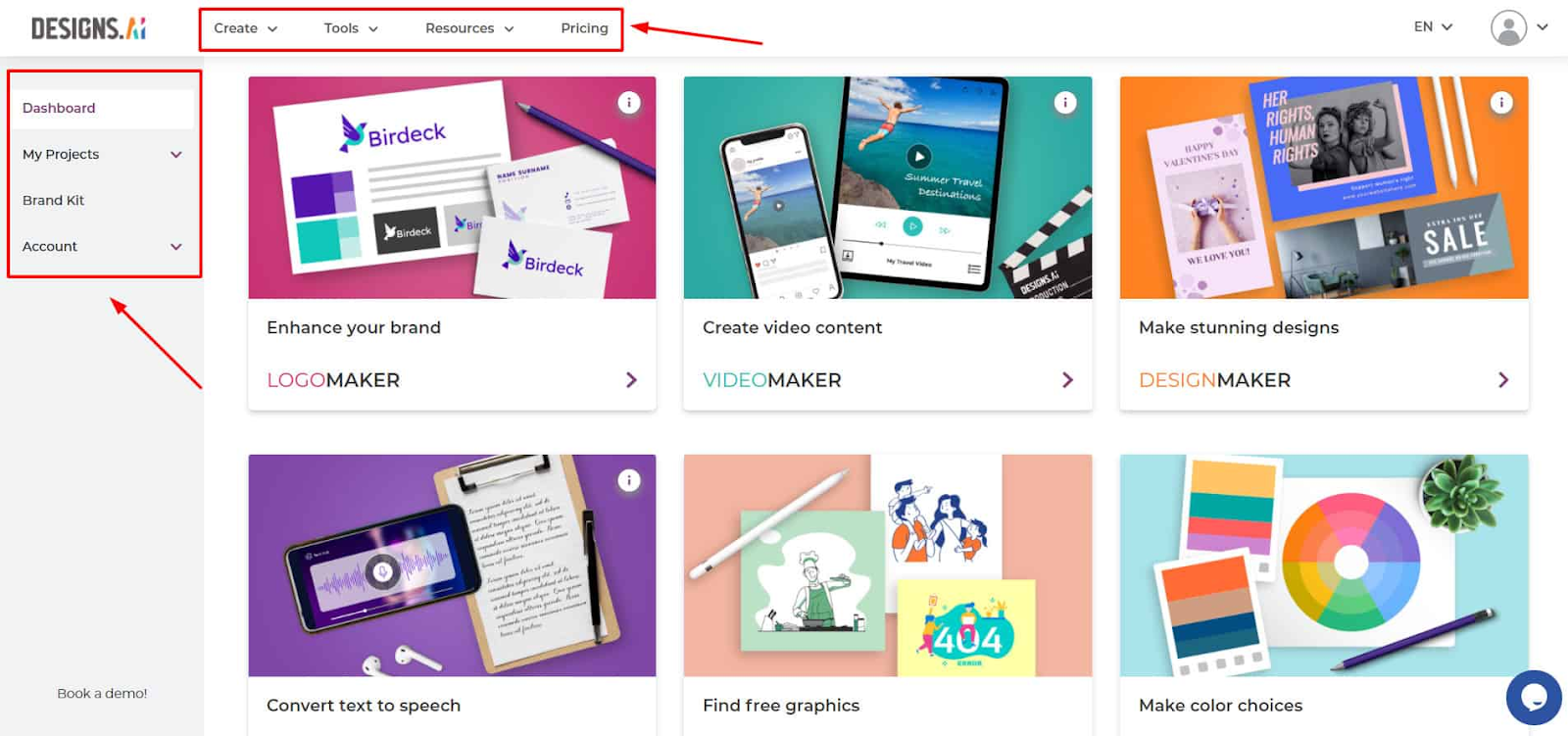
Designs.ai, Adobe Sensei and Predis.ai help marketers quickly and easily reduce manual work, automatically generate multiple designs and approach said designs from a data-driven perspective. You can create logos, graphics, videos, mockups and speeches, and take advantage of performance forecasting to make better design decisions in the long run.
Copywriting
If your team is in pursuit of a tech-powered copywriting system, look no further than an exhaustive tool like Jasper.ai or ByWord. These AI powered article writing tools are designed to craft copy in a range of tones and styles on essentially any topic you can come up with. It’s simple and intuitive, and, when used strategically, Jasper’s natural language processing has endless potential to create initial content drafts that human copywriters can then spruce up accordingly.
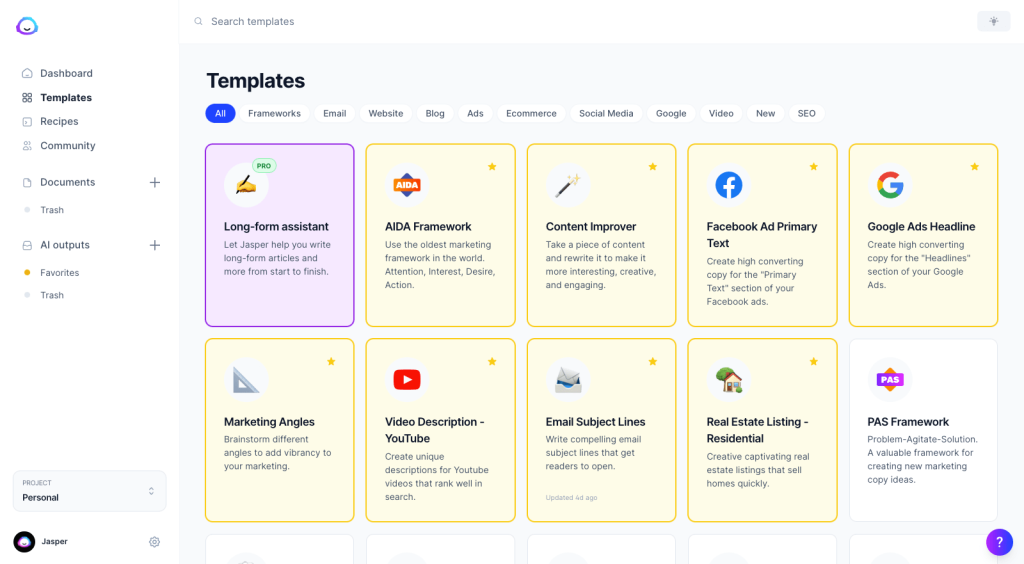
After all is said and done, teams can even implement AI tools for content editing. There’s a variety of options to choose from, like Grammarly or Hemingway App, that will do the trick — highlighting errors, suggesting corrections and maximizing readability and clarity for the best results.
Last but not least, it would be remiss of us not to mention ChatGPT. This comprehensive language model has quickly taken the world by storm. While ChatGPT is technically a chatbot, it’s being utilized as a content creation and code-writing resource.
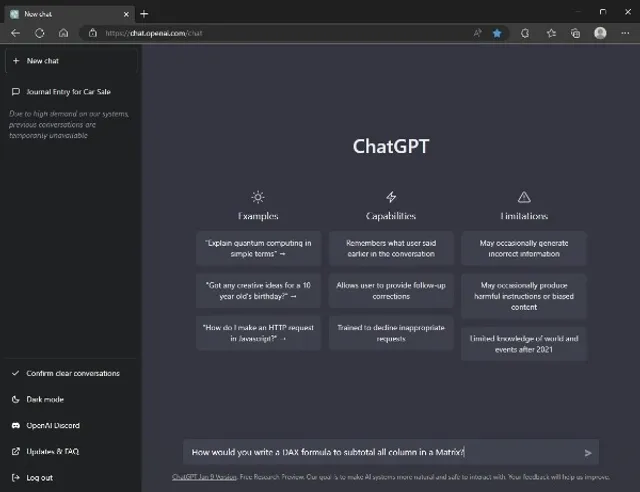
As is the case with all of the aforementioned tools, AI can streamline workflows and reduce turnaround time, but it can’t replace the necessary human component of it all.
Media Monitoring
With the assistance of the Brand24 AI tool, businesses can gain comprehensive insights into their market position. As a result, they can devise more effective marketing strategies by leveraging the extensive data provided by Brand24. This powerful tool proves invaluable for analyzing both positive and negative customer feedback, offering a wealth of actionable intelligence like sentiment analysis, Share of Voice, or automatically generated reports.
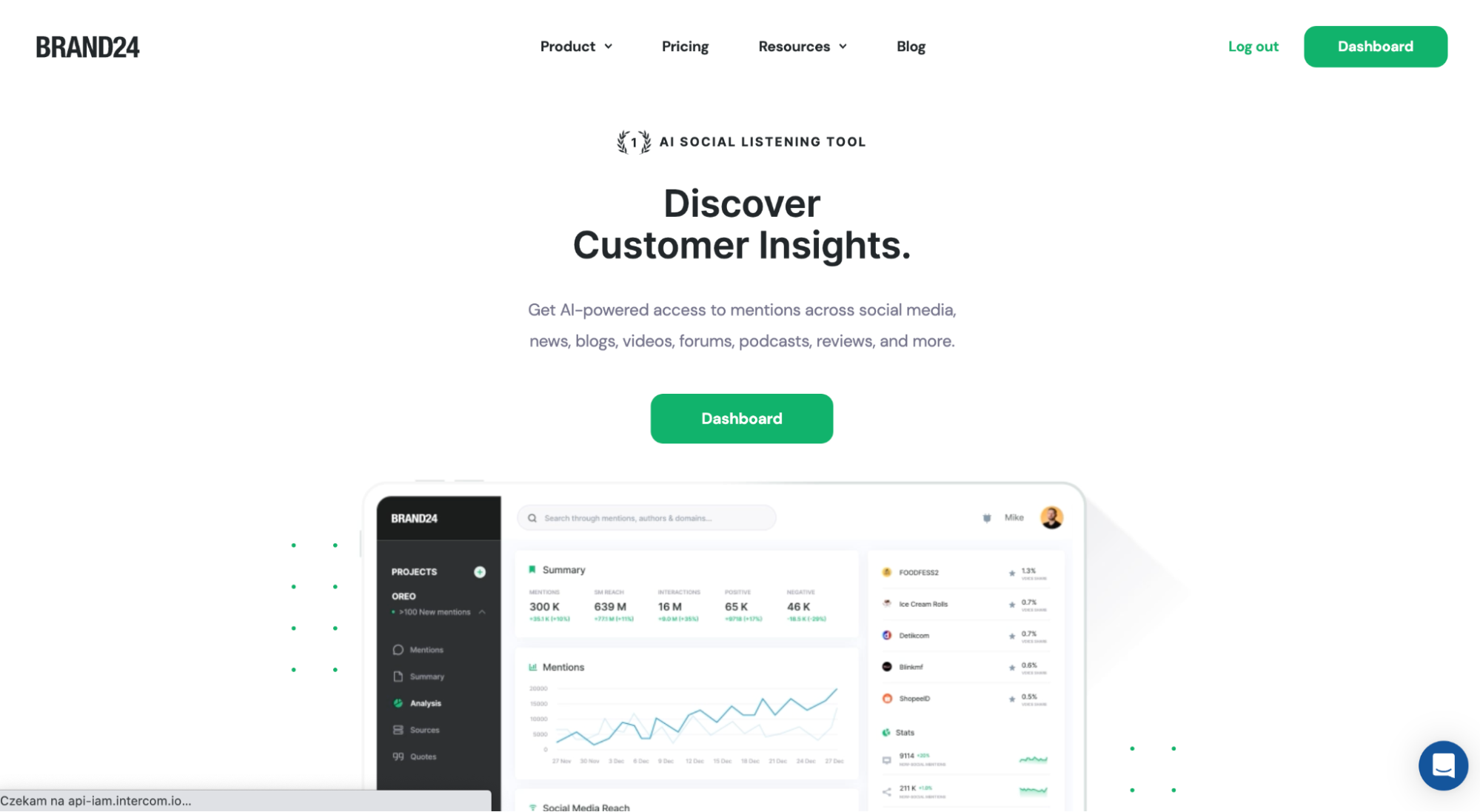
Moving Forward With AI Marketing
With everything we’ve said in mind, one thing is clear — AI technologies are here to stay, and marketing teams specifically have a lot to gain from the growth of AI applications. Why? Because marketers aim to achieve core goals like understanding consumer needs and empowering them throughout the customer journey, processes which AI can significantly improve.
For organizations considering where AI might fit in their long-term content marketing strategy, it’s up to your business to understand what value AI, automation and machine learning might offer your brand and how you can positively add it to your company’s unique technology stack.
If you’re ready to dip your toes into this new tech, it’s critical to recognize what intelligence level you need and whether the AI tool should stand alone or act as part of a broader platform. Keep in mind that if you’re new to emerging digital marketing solutions, then simple stand-alone task automation apps (e.g., email newsletters or social media scheduling) are a great way to get started. Once your marketing team builds its capabilities and feels well-versed in digital strategies, you can confidently make the move to more advanced, integrated apps that incorporate ML. These cutting-edge, interconnected solutions ultimately have the greatest potential to create value for your business.
When it comes to digital marketing, AI isn’t a one-size-fits-all solution. Don’t pick it up just because it’s the “hot new thing” in the space today, but rather because it’s the right fit for your marketing strategy and tech stack. And if you take care to use AI tools strategically, you might just see invaluable results.





